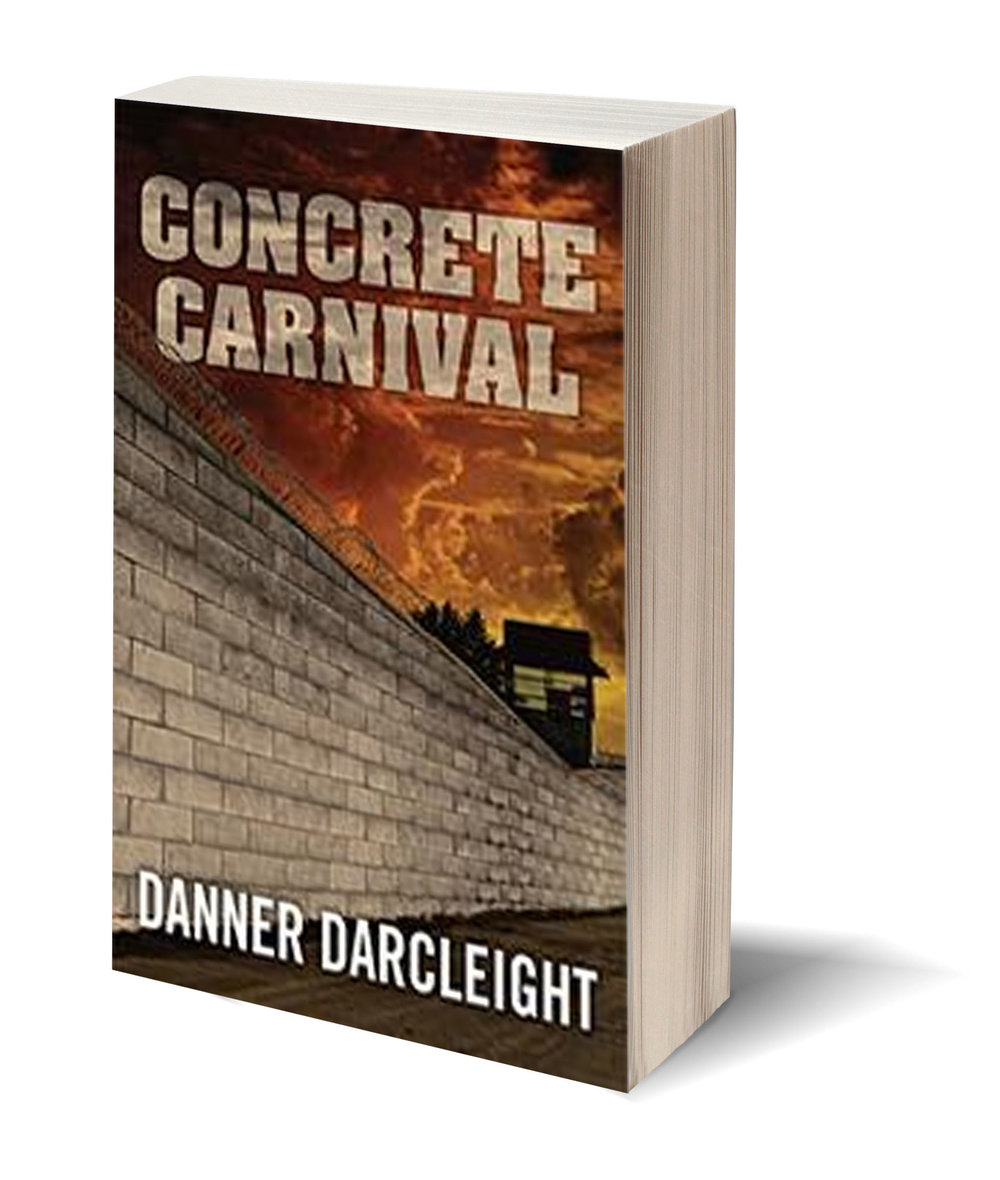Concrete Carnival
By Danner Darcleight
The Permanent Press |
 |
|---|
Reviewed by Charles Holdefer
Danner Darcleight's recent memoir, Concrete Carnival, has much to say about America's fifty-first state. With over two million inhabitants, this state is more populous than Nebraska or New Hampshire or a dozen other states. This is the state of Incarcerated America.
Danner Darcleight is a prison resident. Convicted of murder, he is currently serving a sentence of twenty-five years to life. Concrete Carnival is lively and troubling and displays literary verve, attempting something more ambitious than insider journalism.
Concrete Carnival dramatizes the singularity of prison life while at the same time showing how it reflects and magnifies American values. It is a generic mash-up of prison sketches, recovery memoir, and love story. It is also a testimony to the power of books.
In many respects Darcleight is an atypical prison resident. White, college-educated, and raised in suburban affluence, he refers to himself as a "soft child of privilege" and acknowledges that his presence in prison inspires cognitive dissonance. "I've got a bachelor's degree," he writes, "and in the land of pre-GED, that makes me a fucking king. For almost my entire incarceration I've worked in offices, clerking for highly placed civilians." After a flirtation with the death penalty, he has managed to work his way up to honor block, where prisoners live in better conditions and can, for example, do their own cooking. He observes:
No one will ever confuse me for the revolutionary George Jackson. He was a Panther. I'm a pussycat. He dug Ché, Lenin and Giap. With seven years into my prison term, I'm relatively content to be living in Prison A, and am more into chai, Lennon and the GAP.
This self-consciously jangly style, also evident in the memoir's title, can be entertaining, but it wouldn't be enough to sustain a book. Fortunately, Darcleight inhabits other registers and shows a willingness to own up to his vulnerabilities. The most affecting passages of Concrete Carnival are the loving reminiscences of the author's younger brother, whose life is now beyond Darcleight's reach and has been reduced to precious phone calls; or an account of the misery inflicted by prison noise and a hellish inmate named Chui; or descriptions of a close circle of beloved inmates, his friends Doc, Whit, and Yas, with whom he can share meals and who constitute, without exaggeration, a surrogate family.
Other sections are devoted to the painful question of how the author ended up in prison—in his case, a result of a prodigious appetite for drugs. By his account, 500 hits of ecstasy, Ritalin binges with Valium chasers, whippits of nitrous oxide, amid a backdrop of bongs and alcohol, were all part of being a party boy. But it was his discovery of heroin that proved his undoing. Heroin unmoored him and quickly reduced him to a "reptilian brain." It brought him to murder.
This destructive appetite follows him into prison, where he eventually comes to regret his efforts to procure "dompers" (a common prison drug), or to consider a fellow inmate with metastasized cancer as a promising source of pharmaceutical goodies. Doing time, Darcleight makes clear, either focuses or unhinges the mind.
Focus comes to him in several forms. First, from reading. Concrete Carnival offers a heartfelt testimony to the power of books. The notion of "escapist literature" takes on a different meaning for a lively mind confined to a jail cell, and the memoir embraces the literary and philosophical. Orwell and Nietzsche are cited along with Seneca and Viktor Frankl, as well as "prison writers" like George Jackson, Jack Henry Abbott, and Jean Genet. Women writers are curiously absent, given Darcleight's expressed longing for the feminine; so are political responses to his situation. Experiences are seen by the author as largely personal, rarely ideological.
Writing offers another means of focus. This book refers fondly to Darcleight's writing teacher, here referred to as Jameson. (This memoir, as is evident in the author's name, relies on pseudonyms.) Concrete Carnival is a positive example of the importance of prison writing workshops, beyond their psychological utility, because the author's prose leaps beyond the conventions of a classroom writing exercises and stands on its own as absorbing work.
Lastly—improbably and happily—Darcleight manages to fall in love and get married ten years into his sentence. This brings new complications and hardships to him and his wife, Lily, but it is unquestionably a source of hope and a reconnection with the world "outside." This does not make for a "happy ending"—he is in dreadful situation, as he makes clear in the last chapter when he revisits his crime and the terrible hurt he has inflicted. But it recalibrates his perceptions and the reader leaves behind a prisoner who is, in his own words, "quiveringly alive."
